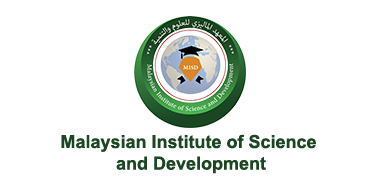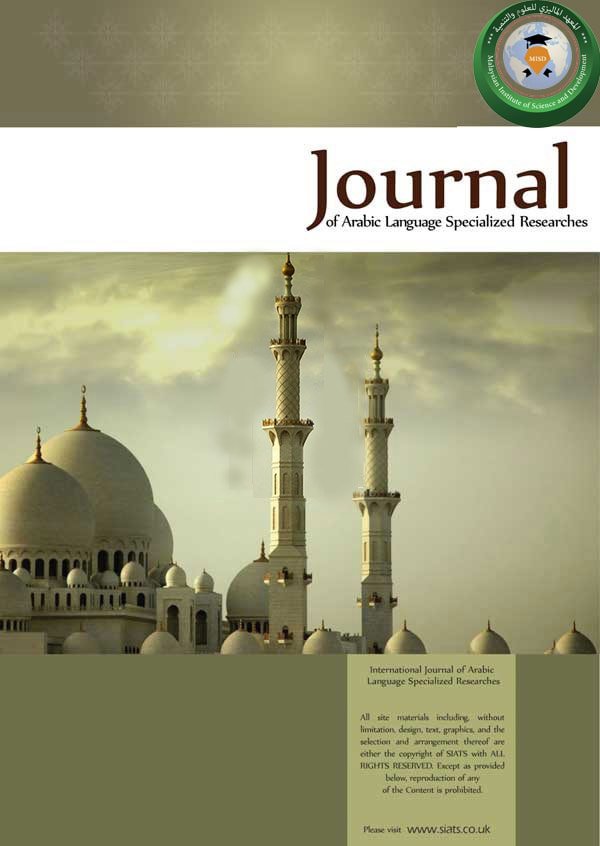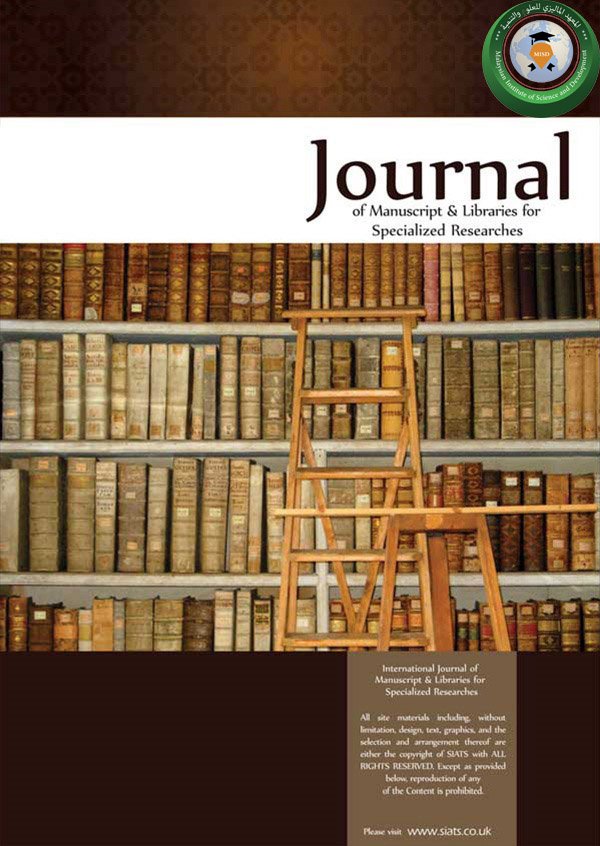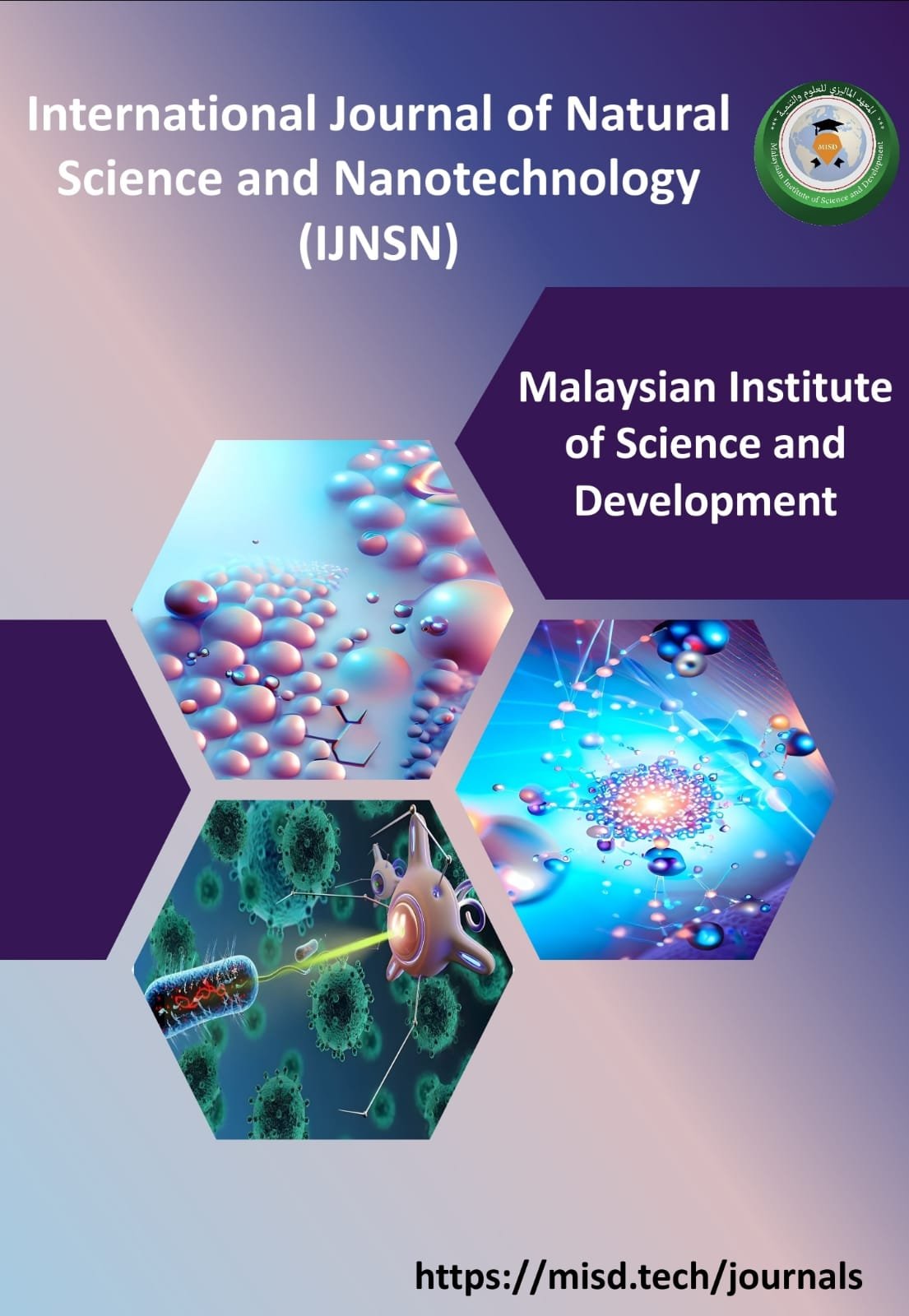- LATEST
-
- social investment and it’s role in social development
- the effectiveness of yarmouk university faculty members' use of digital media platforms in the educational process
- “the future of the political mobility in egypt after june 30, 2013 “sociological analysis and field work study”
- attitudes of teachers in schools towards using the educational drama strategy in the teaching process
- a dominant expressive speech acts in bronte's "wuthering heights" socio-pragmatic study
- the richness of digital media in school leadership a survey study on the principals of ramtha schools
- the impact of community security on societal harmony - the libyan case as example
- a proposal to improve the psychological quality of life for female students of al-zahraa college based on the theory of choice
- the role of the media in shaping public opinion
- employing public relations in health institutions for social networking sites to confront the covid virus an analytical study of the ministry of health website on facebook for the period from april 2021 – may 2021
- the impact of social stigma related to infection with the emerging covid 19 a study applied to a sample of survivors
- the feeling isolation among spouses the relationship the educational level of the spouses and the family income
- the reality of neuropsychological reeducation for the aphasia
- the knowledge industry among muslim youth and its role in confronting the threat of pornography
- representation’s authority of in the contemporary iraqi formation
- digital marketing of nanotechnology in the media industries
- policies drawn from research reports findings on the development of the jordanian associations sector and the obstacles to their implementation.
- image of anti-corruption institutions among the iraqi public - integrity commission as a model
- mechanisms for building terminology in the press and the conditions for building it study of the terms used in iraqi newspapers
- social media and social change in algeria
- marketing the political personality in egypt through social media networks – conents, forms and reception –
- attitudes of jordanian advocates using social media and its relationship to confronting hate speech
- american propaganda contents in international satellite channels directed in the arabic languageabout the iranian nuclear file, an analytical study of the main news bulletins in al-hurra
- media education as a mechanism to protect children from the dangers of informatics: a reading on the role of the educational institution
- emotion between culture and social media
- ethics of the written press in algeria through legislation and media laws
- preparing and presenting political tv programs and their reflections on the audience a field study
- full – journal
- publicity in the era of communication technology: an analytical approach to the advantages and prospects of electronic advertising
- prospects of using communication technology in public relations activity
- a relationship that exposes saudi youth to instagram as one of the visible channels of communication in the development of social and family relations
- the ranking of arab countries in the registration, growth and sustainability of societies and their relation to governance, developmental performance and population size
- (the impact of public relations on marketing in the social media era (descriptive study
- sustainable development and environmental communication issues between application dialectics and governance challenges
- the live broadcast across social networking sites and its implications on the professional coverage of arabic news channels" analytical study
- attitudes of foreign language teachers in jordanian universities towards applying information and modern communication in teaching languages
- the role of television programs in spreading the culture of societal peace
- identity and cultural specificities in virtual communities
- internet and building virtual social relationships
- the public's use of social networking sites, and their implications for the iraqi family - a survey of a sample of the audience of the city of baghdad
- recent trends in effective dispute resolution mechanisms an empirical study on the role of the clan in conflict resolution in libya
- some characteristics of homosexuals and lesbians and the relationship of their sex with their motivations, their preferences and their sexual practices, field study on a jordanian sample
- ego situations and their role in improving personal communication
- trends of academic elites regarding the treatment of iraqi satellite channels of terrorism
- the means of social communication and its role in promoting the value of "culture" among young people according to the epistemological heritage of the theory of the determinism of the value of abdul rahman azi
- (addressing terrorism issues from the point of view of yemeni media)
- the level of knowledge and skills of arab media professionals in protecting children's rights before and after training during their professional service: a field study on a sample of algerian media professionals
- degree of the practice of the heads of academic departments at al-aqsa university to manage excellence and its relation to the level of improvement in the performance of the faculty members
- the developmental contribution of women leaders in the light of stereotypes a field study in tlemcen - algeria -
- culture in the algerian media an analytical descriptive study of the presence of cultural products in private channels
- diversity management reality and its impact on organizational culture at palestinian universities – gaza governorates
- contents of indian films after it integration with hollywood an comparical analytical study
- addressing the dialogue programs of the issues and events on the national scene (the dialogue of the hour in the third channel of algeria), (here algeria yalhroz news) model
- the sports journalists in the three channels of algerian radio are a professional sociologist
- trends in suicides in jordan during the years 2016-2012 and planning them
- media misinformation and political elites
- the professional and ethical practices in palestinian news rooms
- semiemies as a curriculum for media and social studies
- objectives of the jordanian social work and its operational activities and feedback from the perspective of some academics and social practitioners
- the impact of alternative media on media work in algeria a field study on a sample of media professionals in the state of setif and lida haddadi
- the implications of the new media on the literary scene
- the american community's view of muslims through the page "the streets of america
- receive and interpretation and their role in identifying the future audience
- evaluation of the management of social changes in countries
- processing of iraqi electronic media for the american elections 2016
- the role of cultural awareness of the importance of the art of the palestinian poster in spreading the palestinian cause globally
- using of electronic means of communication in e-learning
- the role of public relations in achieving job satisfaction of the teaching staff in jordanian universities
- values in jordanian children's magazines: hatem magazine is a model
- the role of youtube channels in shaping saudi viewers' views on saudi public issues
- the role of radio and television in instilling values of transparency, integrity and fighting corruption in egyptian society
- performance and planning of women's protection and protection from violence in jordan
- functional integration between school and family in the process of socialization
- rumors and social networks, risks and ways of confrontation
- trends of the programs of iraqi satellite channels and their role in building the mental image of the performance of iraqi politicians, a survey of a sample of the elite audience
- public media in the arab world study in radio and television organizations
- harmonizing the content of children's programs to bloom's levels in the field of knowledge from the academic point of view
- iraqi press and its role in disaster risk education
- iraqi women and freedom of expression
- functional construction by dr. shaker mustafa salim
- internet uses by public relations administrators in jordanian universities
- listening comprehension problem with english lectures
- distance learning and its role in the development of knowledge societies a theoretical study of the reality of distance education in the arab world
- towards a media discourse that enhances the sense of national identity among arab youth
- challenges facing digital media in the arab world

Journal of Media and Social Studies for Specialized Researches (JMSSSR)
About the Journal :
The Journal of Media and Social Studies for Specialized Researches is issued quarterly by the Malaysian Institute of Science and Development (MISD), it is considered valuable achievement for SIATS institute to establish this journal in order to serve the issues of nations and human society’s. The journal contributes significantly in research and development through publishing distinguished researchers according to the scientific publishing standards. The journal is an outcome of collaborations between a distinguished community of leading academics and researchers from Arabic, Islamic and Western world.
Journal Goals :
To encourage the scientific research in the Arabic and Islamic universities, as well to provide the opportunity for researchers to publish their scientific researchers.
To contribute in producing continuous and specialized researchers in the areas of media, communication, and social sciences.
Encouraging the creative researches and competition between researchers which will contribute to improve the researcher’s skills and researcher’s
PUBLIC MEDIA IN THE ARAB WORLD STUDY IN RADIO AND TELEVISION ORGANIZATIONS
The mutation of the role of the public service television in the Arab World since the outbreak of the Arab Spring proved the need for this service not only to be reviewed, but also to be able to keep place with the transformations and revolutions undermining the existence of the Arab World. It has become clear then, that television, in addition to its leading role in forming the public opinion trends, is considered as one of the determining factors in the process of social integration and a major carrier of culture, and some theories consider it an instrument which defines the choice of individuals in their relation with the others and with their environment. From this point, the effect, mission and role which television can play particularly during the phase of democratic transition have become a central problematic which requires the provision of a set of determinants the most important of which is that television of the democratic transition should be a public and democratic facility. Our study on “the public service television in the Arab World” falls within this context. Circumstances of the post- revolution period have matured more than any time before the necessity to consider the reasons behind the lack of development of the public service television. Any attempt to reform the media in the future cannot be possible without being based on a scientific diagnosis and a critical approach of the way Arab countries deal with the public service television.
To get deeper insights into the problematic and hypotheses of our study, we have opted for a sociological survey using the form as an instrument. The form, which has been addressed to most television and radio management of the member countries of the Arab States Broadcasting Union (ASBU), is divide into five parts including more than thirty questions. According to the study conclusions, we can say that radio and television corporations in the Arab World do not meet the recognized standards and requirements of the concept of public service. This can be seen through the absence of independent editorial boards in most radio and television corporations in the Arab World. The main authority having the power of decision about the editorial policy of the radio and television corporations is the government, the ministry of information or a designated board of trustees, and the limitation of the role of the media regulatory authorities to a mere consultative role. The Arab citizens do not directly contribute in the funding of the public television in most Arab countries, may be lest becoming a controller. And we have seen that 8 out of 10 corporations are funded by the state treasury in the first place and from advertising secondly.
© Copyright 2024 - Aliret







 العربية
العربية